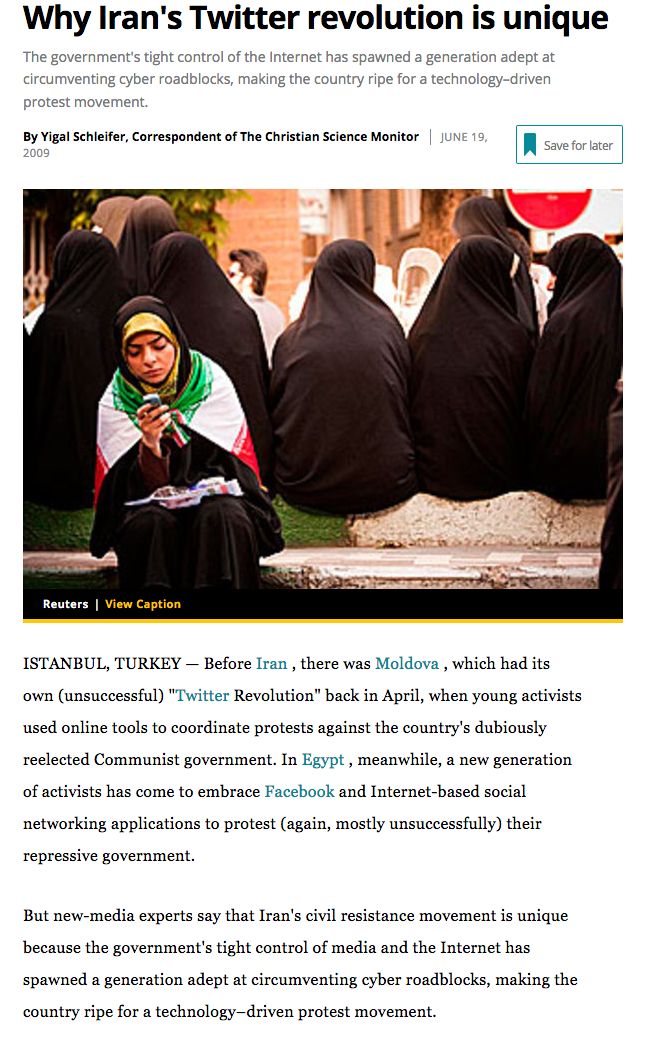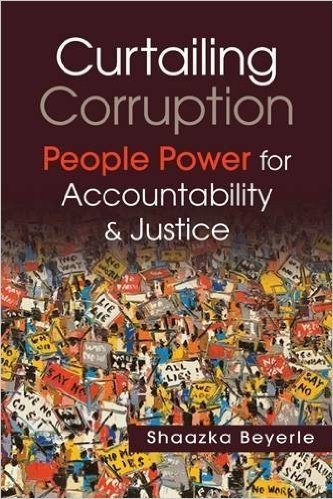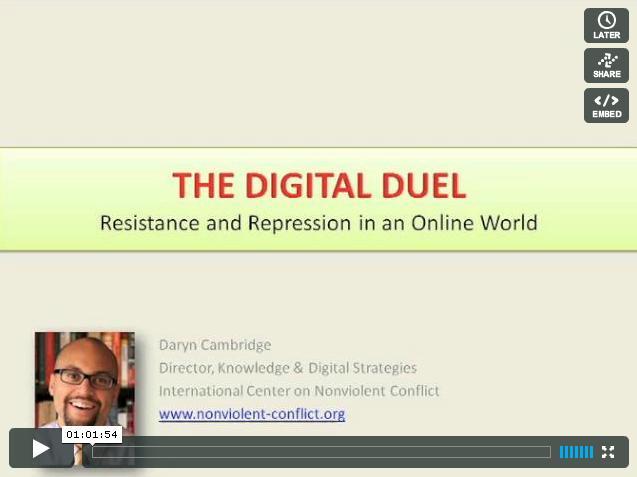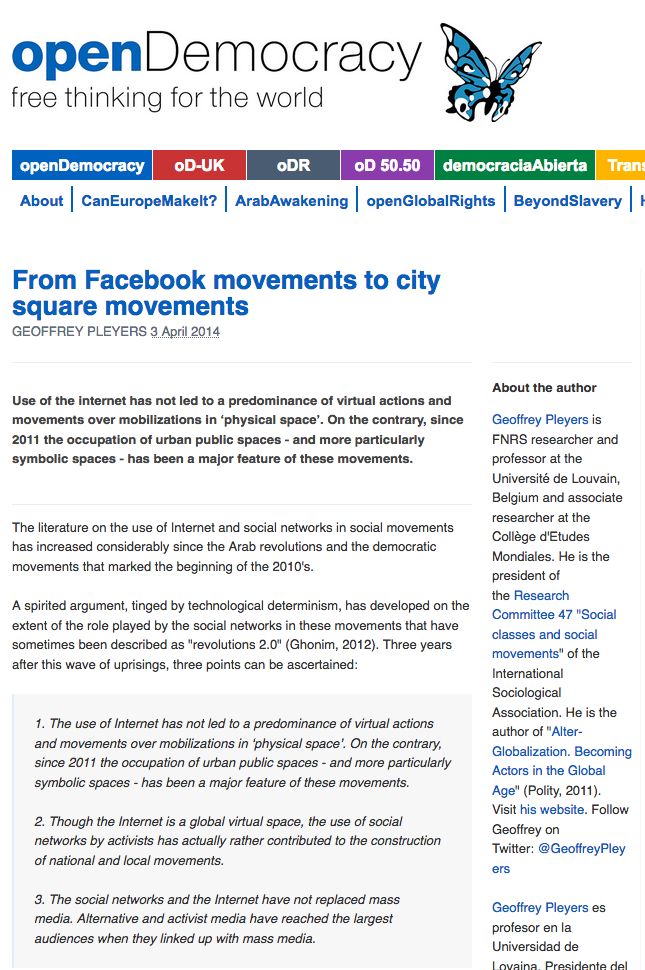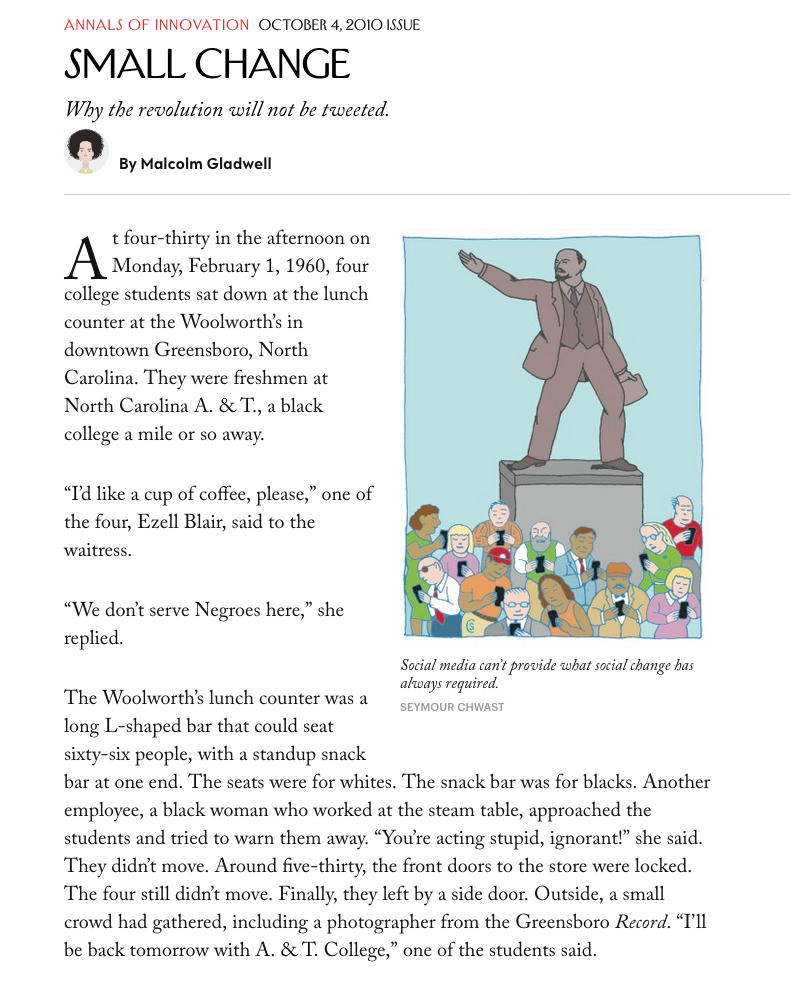
Small Change: Why the Revolution Will Not Be Tweeted
From the article: The platforms of social media are built around weak ties. Twitter is a way of following (or being followed by) people you may never have met. Facebook is a tool for efficiently managing your acquaintances, for keeping up with the people you would not otherwise be able to stay in touch with. That’s why you can have a thousand “friends” on Facebook, as you never could in real life.
This is in many ways a wonderful thing. There is strength in weak ties, as the sociologist Mark Granovetter has observed. Our acquaintances—not our friends—are our greatest source of new ideas and information. It’s terrific at the diffusion of innovation, interdisciplinary collaboration, seamlessly matching up buyers and sellers, and the logistical functions of the dating world. But weak ties seldom lead to high-risk activism.
The New Yorker, October 4, 2010

